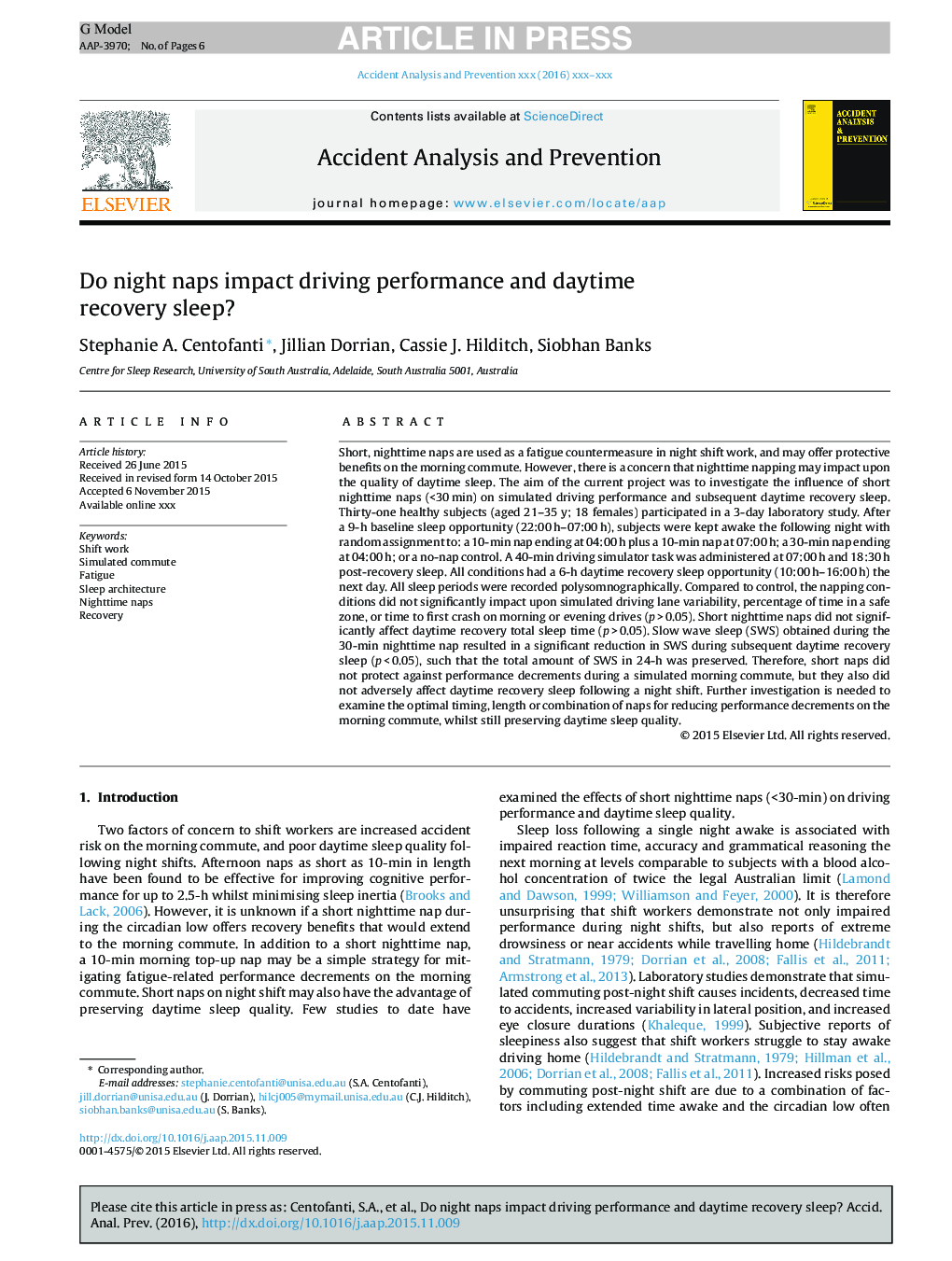| کد مقاله | کد نشریه | سال انتشار | مقاله انگلیسی | نسخه تمام متن |
|---|---|---|---|---|
| 4978768 | 1367780 | 2017 | 6 صفحه PDF | دانلود رایگان |
عنوان انگلیسی مقاله ISI
Do night naps impact driving performance and daytime recovery sleep?
ترجمه فارسی عنوان
آیا شبهای خواب شباهت به عملکرد رانندگی و بازیابی خواب در روز را دارند؟
دانلود مقاله + سفارش ترجمه
دانلود مقاله ISI انگلیسی
رایگان برای ایرانیان
کلمات کلیدی
کار تغییر، رفت و آمد شبیه سازی شده، خستگی، معماری خواب خوابیدن شبانه، بهبود،
موضوعات مرتبط
مهندسی و علوم پایه
مهندسی شیمی
بهداشت و امنیت شیمی
چکیده انگلیسی
Short, nighttime naps are used as a fatigue countermeasure in night shift work, and may offer protective benefits on the morning commute. However, there is a concern that nighttime napping may impact upon the quality of daytime sleep. The aim of the current project was to investigate the influence of short nighttime naps (<30 min) on simulated driving performance and subsequent daytime recovery sleep. Thirty-one healthy subjects (aged 21-35 y; 18 females) participated in a 3-day laboratory study. After a 9-h baseline sleep opportunity (22:00 h-07:00 h), subjects were kept awake the following night with random assignment to: a 10-min nap ending at 04:00 h plus a 10-min nap at 07:00 h; a 30-min nap ending at 04:00 h; or a no-nap control. A 40-min driving simulator task was administered at 07:00 h and 18:30 h post-recovery sleep. All conditions had a 6-h daytime recovery sleep opportunity (10:00 h-16:00 h) the next day. All sleep periods were recorded polysomnographically. Compared to control, the napping conditions did not significantly impact upon simulated driving lane variability, percentage of time in a safe zone, or time to first crash on morning or evening drives (p > 0.05). Short nighttime naps did not significantly affect daytime recovery total sleep time (p > 0.05). Slow wave sleep (SWS) obtained during the 30-min nighttime nap resulted in a significant reduction in SWS during subsequent daytime recovery sleep (p < 0.05), such that the total amount of SWS in 24-h was preserved. Therefore, short naps did not protect against performance decrements during a simulated morning commute, but they also did not adversely affect daytime recovery sleep following a night shift. Further investigation is needed to examine the optimal timing, length or combination of naps for reducing performance decrements on the morning commute, whilst still preserving daytime sleep quality.
ناشر
Database: Elsevier - ScienceDirect (ساینس دایرکت)
Journal: Accident Analysis & Prevention - Volume 99, Part B, February 2017, Pages 416-421
Journal: Accident Analysis & Prevention - Volume 99, Part B, February 2017, Pages 416-421
نویسندگان
Stephanie A. Centofanti, Jillian Dorrian, Cassie J. Hilditch, Siobhan Banks,
